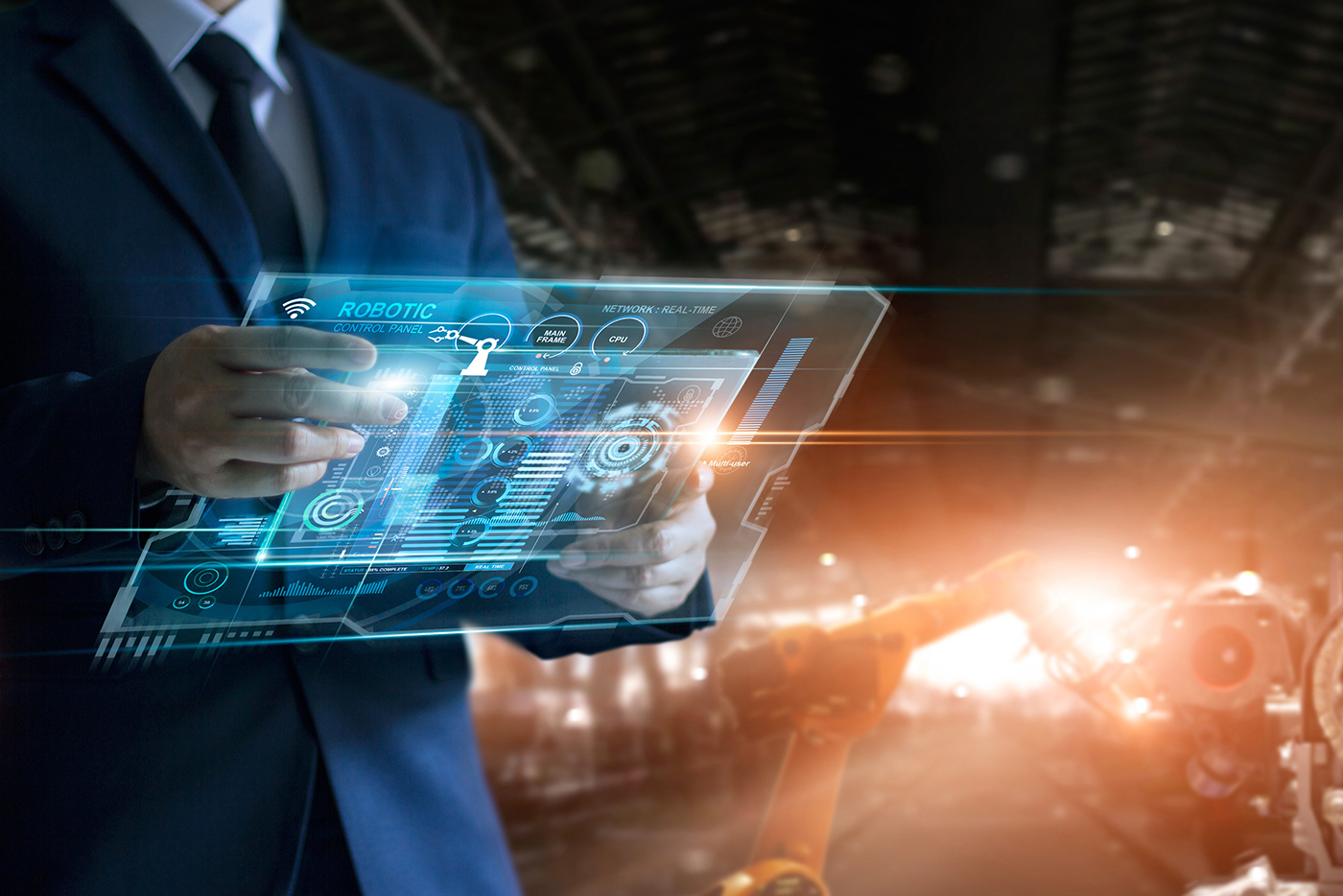How Will Manufacturing Companies Use The Metaverse?
13 May 2022
Manufacturers are already using metaverse technology to speed up product design, train employees, and streamline processes. What is the future of manufacturing in the metaverse?

In South Korea, visitors can now witness the manufacturing of plastic screws by visiting the very first virtual factory set in a metaverse environment. In the VR factory, visitors can personally operate machines to produce plastic screws in a virtual space that simulates a real-world factory. They can even change factory settings like the speed of the production line.
In the metaverse of the future, technology like this will have enormous benefits for manufacturing companies.
Research by PwC indicates that in product and service development alone, the use of VR and AR technology could lead to a $360 billion increase in GDP by 2030.
Let’s take a look at some of the ways manufacturing will improve in the metaverse.
Enhancing Product Design
VR and AR will improve and streamline the product design process in the virtual world of the metaverse. Product designers will be able to drag and drop assets into digital twin simulations and easily identify how manufacturing of those assets might be safer or more efficient without needing to perform time-intensive and expensive physical testing.
A digital twin is an exact virtual replica of something in the physical world. Digital twins can be anything from a small individual component of a product to a massive warehouse, and they are created by connecting Internet of Things (IoT) sensors that gather real-time data from the real world and send it to computers to recreate as a digital representation in the metaverse.
Companies can use digital twins and metaverse technology to:
- Plan, test, and build strategic products while removing the risk of costly mistakes
- Spot potential manufacturing problems before they occur in the real world
- Create products collaboratively in communal spaces
- Shorten product life cycles by incorporating feedback quickly and iterating constantly
Training Manufacturing Workers Using XR
Companies will use VR and AR technologies in the metaverse to provide immersive training experiences that boost knowledge retention among new hires, reduce skills “leakage” when older workers retire, and streamline the transfer of knowledge between teams.
Engineering, aerospace and industrial conglomerate Honeywell uses AR and VR to improve training efforts. The company equips both departing workers and new hires with mixed reality headsets, and the retirees record exactly what they are doing in their jobs. New hires can then see this information overlaid on their own activities.
Improving Production and Manufacturing Processes
Metaverse simulations will allow manufacturers to test thousands of potential factory scenarios and be able to predict the results of upscaling or downsizing. Companies can use these simulations to figure out ways to automate and optimize their facilities.
AR technology is also being used to help technicians do their jobs. For example, technicians in BMW service centers use AR glasses to complete complex repairs and solve maintenance issues. The glasses provide a hands-free video overlay, and the technician can connect with engineers and other experts to work on the problem collaboratively.
BMW also has a virtual factory that simulates an actual production line for electric vehicle drivetrains. The company replicated its entire production line digitally to ensure that all processes ran smoothly before creating the real factory in Bavaria.
Improving Quality Control
In the metaverse, manufacturers will rely on XR to complete quality control and maintenance inspections. This will help them decrease return rates for defective products and lower maintenance costs because they can spot equipment problems because they become major issues.
European aerospace company Airbus is overhauling the maintenance inspection process for its military aircraft. They conduct fly-around inspections using drones fitted with high-definition cameras and AR LIDAR sensors, which generate and send data to experts who can spot defects by examining the data on their tablets and AR glasses. This new system saves time and minimizes damage to the aircraft.
Improving Warehouses and Logistics
In the metaverse, manufacturers will be able to streamline logistics and warehousing functions using AR. For example, supply chain planning and order picking will get faster, easier, and more accurate.
DHL, the world’s largest logistics company, successfully deployed AR for order picking in its warehouses in the Netherlands back in 2015. Now the company is rolling out this new system across North America. Staff members are guided through the warehouse by graphics displayed on glasses, so they can speed up the picking process and reduce errors.
The Future of Manufacturing
This is an exciting time for innovation in manufacturing and logistics settings. The metaverse will enable manufacturers to speed up and improve product design, increase retention rates with immersive training, and improve factory and warehouse processes.
Related Articles
Why AI Agents Are The Missing Link Between Enterprise Ambition And Execution
By now, “smart” versions exist of just about every home appliance, gadget and gizmos we can think of. However, manufacturers continue[...]
5 Mistakes Most Businesses Will Make This Year With Sustainability
By now, “smart” versions exist of just about every home appliance, gadget and gizmos we can think of. However, manufacturers continue[...]
5 Powerful AI Prompts That Can Boost Any Business Idea
By now, “smart” versions exist of just about every home appliance, gadget and gizmos we can think of. However, manufacturers continue[...]
15 Game-Changing AI Tools For Social Media And Content Creation
By now, “smart” versions exist of just about every home appliance, gadget and gizmos we can think of. However, manufacturers continue[...]
5 AI Prompts That Will Transform Your Self-Improvement Overnight
By now, “smart” versions exist of just about every home appliance, gadget and gizmos we can think of. However, manufacturers continue[...]
5 Employee Experience Mistakes Companies Will Make This Year
By now, “smart” versions exist of just about every home appliance, gadget and gizmos we can think of. However, manufacturers continue[...]
Sign up to Stay in Touch!
Bernard Marr is a world-renowned futurist, influencer and thought leader in the fields of business and technology, with a passion for using technology for the good of humanity.
He is a best-selling author of over 20 books, writes a regular column for Forbes and advises and coaches many of the world’s best-known organisations.
He has a combined following of 4 million people across his social media channels and newsletters and was ranked by LinkedIn as one of the top 5 business influencers in the world.
Bernard’s latest book is ‘Generative AI in Practice’.










Social Media